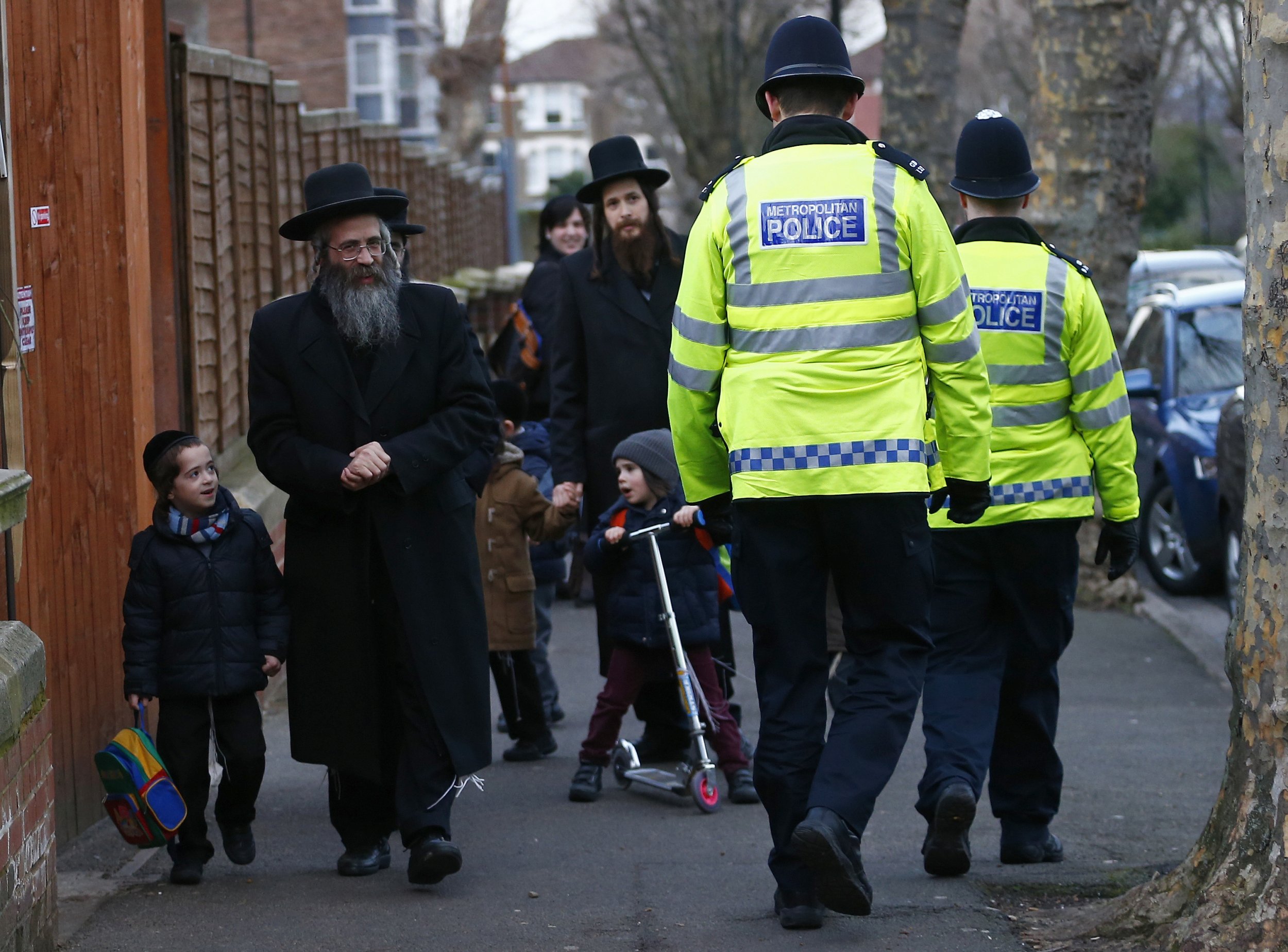
A study on global anti-Semitism has revealed striking contrasts in the occurrence of anti-Jewish acts across Europe. France saw a dramatic decline in anti-Semitic attacks during 2016, but incidents surged in Britain during the year of the bitter Brexit referendum, according to a report by the Kantor Center in Israel.
Reported acts of anti-Semitism worldwide dropped by 12 percent last year—most strikingly in France, where they fell by 61 percent — but the English-speaking world saw significant increase. In the U.K. anti-Semitic incidents were at a record high, while in the U.S. there was a 45 percent rise in cases on university campuses.
Violent crimes against Jews were less common than in 2015, with the majority of incidents involving damage to property, verbal aggression and abuse on social media.
"The sense of security felt by many Jewish communities remains precarious," Moshe Kantor, President of the European Jewish Congress, said in a release published alongside the findings.
"The enemies of Jewish people have found new avenues to express their anti-Semitism—with a significant increase of hate online and against less protected targets like cemeteries."
In the U.K. instances rose 42 percent in a year, with 1,309 anti-Semitic incidents in 2016, compared with 924 the previous year. Of these, 24 percent involved abuse on social media.
There was a spike in incidents in April, May and June—the months leading up to the referendum on Britain's membership of the European Union—and reports highlighted a rise in xenophobic and racist attacks overall. However, Mike Whine, one of the co-authors of the report, tells Newsweek that the divisive discourse surrounding the Brexit vote did not directly affect the Jewish community.
Related: Anti-Semitic incidents in the U.S. increased drastically in 2016, early 2017
Whine, who is the director of the Community Security Trust and a member of the European Commission against Racism and Intolerance, believes that the anti-Semitism scandals surrounding the opposition Labour Party have more directly contributed to a rise in discrimination against the Jewish community in the U.K. than Brexit.
The Labour Party, led by hard-left Jeremy Corbyn, has had several high-profile members make comments widely construed as anti-Semitic. In April 2016 former London Mayor Ken Livingstone claimed that Hitler "supported Zionism" and he was suspended from the Labour Party for two years. The controversy led the party to launch an inquiry specifically into anti-Semitism within its ranks.
Simon Johnson, CEO of the Jewish Leadership Council, says that Labour took an "unnecessarily weak" stance against Livingstone by not expelling him altogether.
Johnson also links Labour Party controversies to the rise in incidents of abuse on social media, highlighting the "vile and disgusting anti-Semitic abuse" that female MPs, including Luciana Berger and Ruth Smeeth experienced in 2016, calling on social media companies such as Twitter, Facebook and YouTube to do more to police their platforms.
However, despite the increase in anti-Semitic incidents in 2016, Johnson says that the U.K. was "still a great place to be Jewish."
He believes the Jewish community is "very satisfied" with the measures put in place by the British government to tackle anti-Semitism.
"For the past two years the government has provided £30 million ( $38 million) in funding for guards outside Jewish schools and synagogues. We cannot ask the government to do anything more." He also points out that the Jewish community in the U.K. has not been targeted in an extremist attack, unlike in other European countries, such as France.
In January 2015, a gunman pledging allegiance to the Islamic State militant group (ISIS) killed four Jewish hostages in a kosher supermarket in Paris. The rising terror threat led to a record number of French Jews fleeing the country and moving to London and other European cities. However, the Kantor study reported a 61 percent drop in anti-Semitic incidents in 2016, and Whine believes it is tied directly to the attacks. He attributes the dramatic drop to the increased police protection of the Jewish community after a series of terror attacks targeted at French Jews.
In early 2016, Rabbi Sam Taylor of the Western Marble Arch Synagogue in London told Newsweek that "it is much harder in France to be Jewish than it is in England."
But the French government has stepped up security across the country to protect the Jewish community.
According to the Kantor Center report, 10,000 soldiers survey the streets, mainly in Paris, and 800 Jewish buildings are under permanent surveillance. Whine says that the Jewish community has also become more proactive in its own defense by placing guards outside schools and synagogues.
In the U.K., the Jewish community will have to wait to find out whether similar measures pay off. But with so much of the anti-Semitism happening online, it's clear resolving the problem completely will be more complicated than adding security to the streets.
Uncommon Knowledge
Newsweek is committed to challenging conventional wisdom and finding connections in the search for common ground.
Newsweek is committed to challenging conventional wisdom and finding connections in the search for common ground.
About the writer
To read how Newsweek uses AI as a newsroom tool, Click here.








